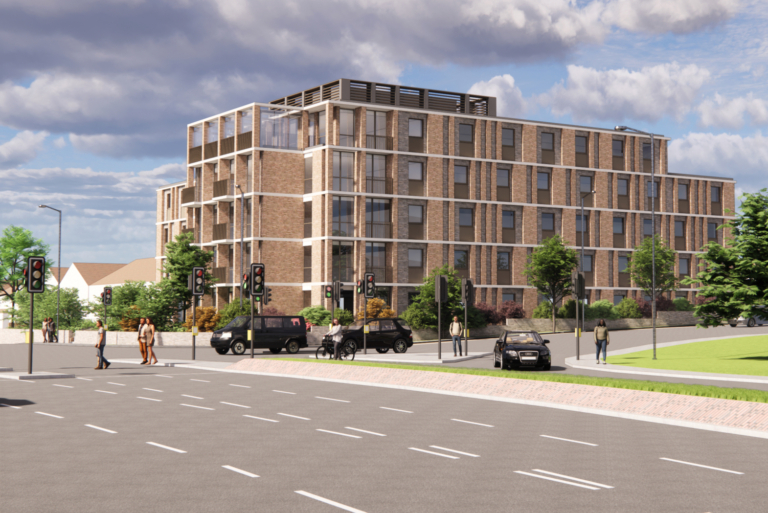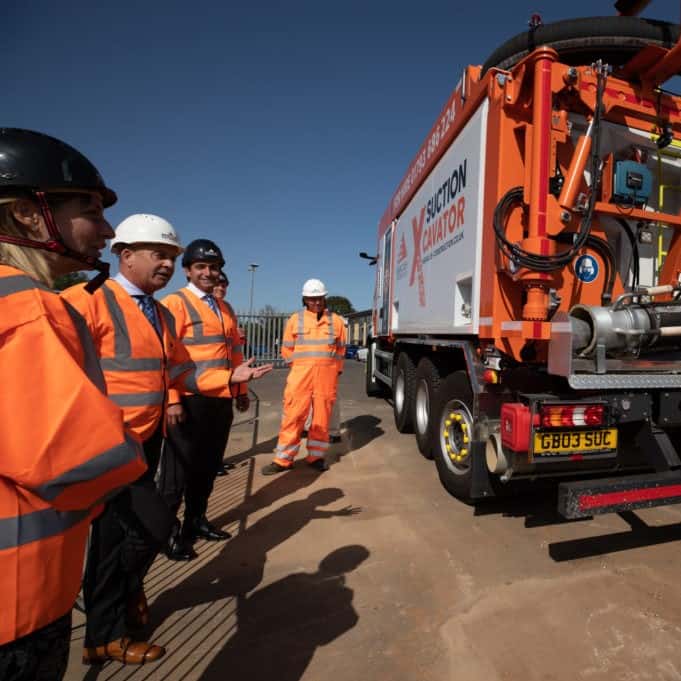Reading: Construction sector needs to 'focus on social value'

The construction sector needs to think far beyond the nuts and bolts of acquiring land, negotiating contracts and building for profit, a seminar in Reading heard.
Edward Dallas, senior economist, Simetrica, and guest speaker at an event hosted by Reading-based law firm Boyes Turner, warned delegates that measurement of social value – which looks at the impact of projects on individual wellbeing - is now increasingly required for all kinds of procurement, including utilities, and particularly in the construction industry.
Simetrica is a leading research consultancy which specialises in helping organisations understand their social impact. The company has worked with leading developers including Morgan Sindall, Lendlease and Redrow Homes.
In a presentation entitled ‘Social Value Social Value: Rising up the Agenda’, Dallas defined social value as “referring to the wider financial and non-financial impacts of projects and programmes including the wellbeing of individuals and communities, social capital and the environment.” He outlined how, since the Public Services (Social Value) Act was passed in 2012, it has become increasingly important to demonstrate the social value of projects on, for example, individual quality of life when making the case for housing and infrastructure projects.
At the seminar, chaired by Jonathan Grigg, partner, Boyes Turner, Dallas flagged that while measuring social value is not yet a formal part of the planning process, it is increasingly taken into consideration as part of a holistic assessment as to the viability of construction projects. Dallas commented: “This trend, including incorporating the requirement into tender documents is set to continue, as private firms now start to adopt the methodology for their own procurement processes.”
Attendees from a range of companies in the sector heard that social value refers to the total impact of an activity on quality of life and involves a comprehensive assessment of its effect across economic, environmental and social spheres.
Successive government initiatives have focused the spotlight increasingly on social value, said Dallas. All public bodies must now consider the social value of services. Those who commission public services need to think about how they can secure wider social, economic and environmental benefits. And to meet the new regulatory requirements, housing associations must show that they are not just saving costs, but are using their assets to maximum benefit, including considering both the social and financial impact, he added.
Dallas explained that Manchester City Council has adopted a 20% weighting for social value in procurement processes. Businesses bidding for all Manchester City Council contracts are now asked to show how they will offer residents social value in kind – which could include, for example, work placements for secondary school pupils, to taking on apprentices for a large construction scheme. Social value is also now being considered widely by councils such as Bristol, Salford, and West Sussex, he said. And, he added, the latest HM Treasury Green Book puts specific emphasis on social value as the aim of government policy.
Dallas warned that in the light of the collapse of Carillion there has been renewed scrutiny of government procurement and that a consultation on potential extension of the Social Value Act to central government procurement is currently taking place.
He outlined a number of mechanisms by which social value including RoI could be measured, using a model which examines inputs, outputs, outcomes and impacts.
Social value can be assessed in monetary terms, Dallas explained, to better allow for comparison across different drivers. For example, the social value of someone undertaking an apprenticeship includes not only the skills acquired and resulting wage uplift and productivity gains that result but also the improvement in confidence that the individual feels as result. Taking all of these factors into account allows companies to help make the case for investment in apprenticeships.
Dallas also discussed how it was possible to demonstrate the value of compliance with voluntary schemes such as the Considerate Contractors Scheme. Sites that scored more highly on the Code of Considerate Practice generate a positive social value.
He highlighted research for Redrow Homes showing that well-designed developments can add more than £34 million of social value to communities. Factors such as proximity to a bus stop, green space and sports facilities can all add to the social value of housing developments, he said.
Jonathan Grigg concluded the seminar by urging organisations to act now. “Government departments will increasingly take account of the social value impact of schemes when awarding contracts, and businesses need to factor this into their planning now,” he said.












